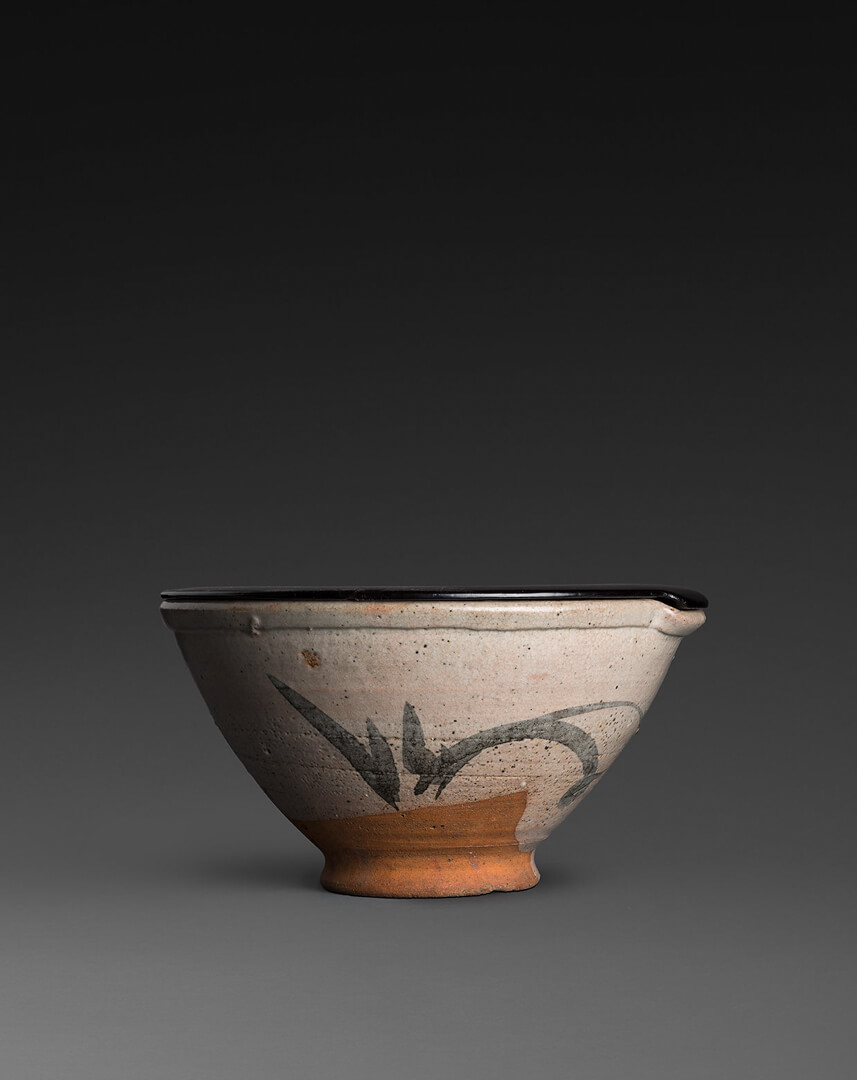Water container
Stoneware, glazed Karatsu ware Momoyama period, 16th c. (late) Inv. CA-CFC.421
Wabi-sabi aesthetics
By the 16th century, influenced by Zen Buddhism emerged the wabi-sabi aesthetics, adopted by the ‘tea ceremony’, or chanoyu, practitioners, and by which ‘the imperfect, impermanent and incomplete’, began to be appreciated, and therefore the preference for coarse, asymmetric and robust ash-glazed stonewares.


